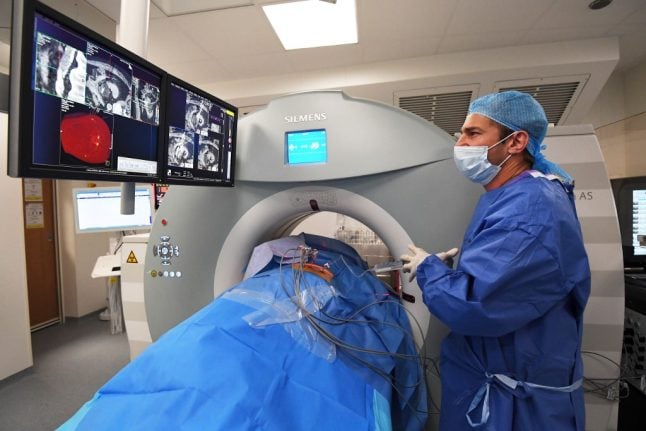People who smoke or have lung cancer should think twice about taking vitamin supplements, according to a Swedish study Wednesday that showed certain antioxidants may make tumors grow faster.
Lab mice that already had cancer were given vitamin E and a drug called acetylcysteine, which sped the growth of their tumors and made them die faster than mice that did not ingest supplements.
"Antioxidants caused a three-fold increase in the number of tumors and also tumor aggressiveness, and the antioxidants caused the mice to die twice as fast," said study author Martin Bergo of the University of Gothenburg in Sweden.
"If we gave a low dose, tumors increased a little bit. And if we gave a high dose, tumors increased a lot."
Research on human lung cancer cells growing in a lab dish also showed that the antioxidants caused the cells to multiply faster than they would have alone, suggesting the same might happen in human patients. While more work needs to be done to confirm the effect in people, Bergo urged those with lung cancer, chronic obstructive pulmonary disease and smokers to take caution.
"You can walk around with an undiagnosed lung tumor for a long time," he said. "If you are in this patient group, then taking extra antioxidants might be harmful and it could speed up the growth of that tumor."
The body produces its own antioxidants to prevent DNA damage from chemicals known as free radicals, but needs more from healthy foods like leafy greens, vegetables and fruits to stay healthy. However, a large body of research on antioxidant supplements in humans has returned mixed results.
Some studies have suggested that people who take antioxidant supplements actually face a higher risk of cancer than those who do not.
One such study of nearly 30,000 men in Finland, which concluded in 1993, found that smokers who took the antioxidant beta carotene had a higher rate of cancer and greater risk of dying. Other studies, such as the SELECT trial which enrolled 35,000 US and Canadian men beginning in 2001, found that men who took vitamin E were more likely to get prostate cancer.
"We haven't completely ironed out which vitamins, if any, may prevent cancer and which may cause cancer development or growth," said Benjamin Levy, director of thoracic medical oncology at Mount Sinai Beth Israel Hospital in New York.
"This study may help explain the negative findings from prior clinical lung cancer studies, including the ATBC and SELECT studies," said Levy, who was not involved in the research.
Researchers said their findings suggest antioxidants help tumors cut down on harmful free radicals, just as they do in normal cells, allowing the tumors to grow faster. Free radicals can damage cells and possibly lead to cancer. But free radicals exist in cancer cells, too, explained Bergo.
"So it is also in the tumor's interest to suppress free radicals, and that is what we are doing when we take extra antioxidants, or give it to the mice in this case," he told reporters.
A protein called p53 can sense when DNA has been damaged by the buildup of molecules called reactive oxygen species (ROS). P53 can stop the growth of the cell and thereby stop the cancer. When extra antioxidants reduce the level of ROS, this "allows the cancer cells to escape their own defense system," said co-author Per Lindahl from the University of Gothenburg.
Of particular concern is the finding that acetylcysteine increased tumor growth, since the drug is often given to patients with chronic obstructive pulmonary disease (COPD) as a way to help them breathe better and clear mucus from their lungs.
"We think that the use of acetylcysteine in this patient group should probably be carefully evaluated," said Bergo.
He added that researchers are now combing through data registries to find out if COPD patients — including people with chronic bronchitis and emphysema — have higher cancer rates after taking the drug. The research appears in the journal Science Translational Medicine.




 Please whitelist us to continue reading.
Please whitelist us to continue reading.
Member comments